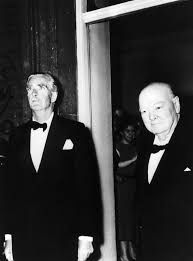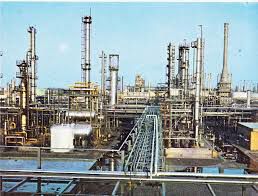THE ANGLO–IRANIAN OIL COMPANY’S CRISIS MORE CRUCIAL THAN THE SUEZ CANAL CRISIS: BRITISH LIMITATION: NOT LEARNING A LESSON!

The Labour Foreign Secretary, Herbert Morrison, was in favour of taking military action against Iran, in order to regain the oil facilities at Abadan. Prime Minister Clement Attlee was against the idea of military intervention, because in his opinion use of force would only strengthen nationalist feelings in Iran. Additionally Attlee believed that without British personnel the running of the oil facility would soon come to a halt, as a result the Iranians would be forced to come to some kind of agreement with Britain. Emmanuel Shinwell, the Minister of Defence, was the only other member of the Attlee Cabinet who favoured the idea of the use of force to retrieve the Abadan oil facilities. However, Prime Minister Attlee, with the prospect of the forthcoming General Election on his mind, was under strong pressure from the Conservatives, the Foreign Secretary, Herbert Morrison, the Defence Minister, Emmanuel Shinwell, to take military action. Furthermore, the Chief of the Imperial General Staff, Field Marshal Slim, Lord Fraser, the First Sea Lord, and Sir Francis Shepherd, the British Ambassador to Teheran, called for military intervention. The United States’ President Truman asked his personal advisor, Averell Harriman, to mediate in the dispute. The Truman administration was firmly in favour of negotiations to settle the crisis. The American Government was worried by the possibility of a communist takeover in Iran. The Truman Administration’s view was that a British military attack would become a pretext for Soviet intervention in Iran. The problem was complicated by the Korean War which had used up so much of the United States’ military strength that she had no manpower to cope with such a Soviet move. Furthermore, commitment of the American forces to protect Western Europe during the Cold War under the North Atlantic Treaty Organisation (NATO), also added to the pressure of lack of manpower.
By the end of 1951, Britain was already in the grip of severe economic and industrial difficulties. Britain was in a sterling crisis. The British Government was planning to request economic assistance from the United States. The British Chancellor of the Exchequer, Hugh Gaitskell, firmly opposed taking military action to retake the Abadan oil facilities on the ground that such an operation would be expensive for the British economy. Moreover, he was going to ask the United States, who were against taking military action, for economic aid. Financial considerations prevailed. Prime Minister Attlee took a firm stand against the use of force. Economic sanctions and taking measures to blockade the Iranian oil were enforced. The British Government put the Anglo-Iranian Oil Company’s dispute to the International Court of Justice. Also a British mission headed by Richard Stokes, Lord privy Seal, and Minister of Materials, visited Iran, as a result of the intervention of Averell Harriman, President Truman’s personal advisor.



